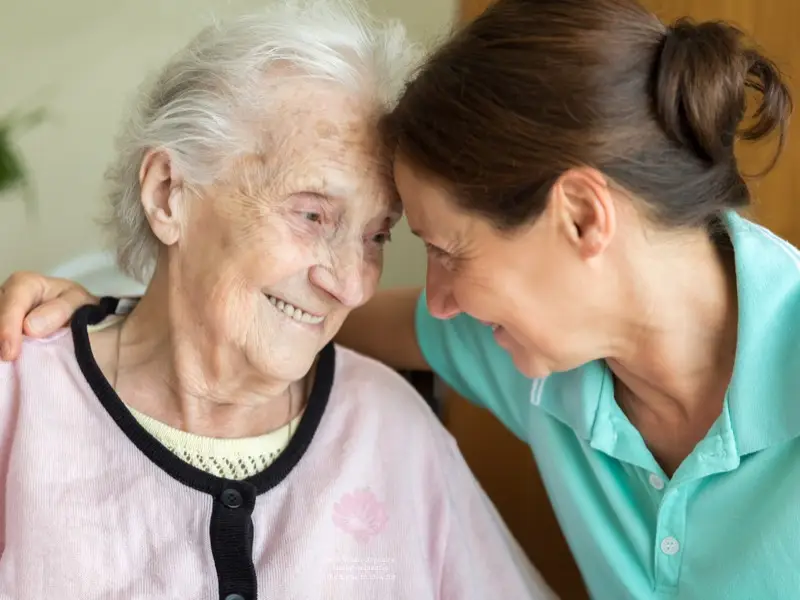
When it comes to recognizing dementia in your loved one, knowing which signs to look for can help ensure an early diagnosis. That’s why, as your loved one ages, it’s important to know the warning signs of dementia — both for their sake, and so you can seek the support you need.
Here are ten of the most common dementia signs to keep an eye on.

1) Memory Loss
It’s normal to struggle to recall something, only to have it come back to you later. But as they go about their day, a person living with dementia may forget things more often. While their older, more ingrained memories might remain unchanged, they may have difficulty recalling recently learned information.
2) Difficulty carrying out familiar tasks
If your loved one seems to forget how to complete a familiar task, or carry out a familiar routine, that could be a sign of dementia. Keep an eye out for difficulty preparing a meal they’ve made many times before, or trouble remembering the rules of a favourite game.
3) Forgetting simple words
When someone is dealing with dementia, they may find their language is affected and they struggle to express themselves. They might have trouble remembering a simple word during a conversation, and they may make up for this by substituting other words that don’t quite fit.
4) Time and place confusion
We all have moments of forgetting why we just came into a room, or thinking it’s the wrong day of the week. But people living with dementia have these moments more often. They can find themselves feeling lost or disoriented in a familiar place, even on their own street. If your loved one seems confused how they got somewhere, or confused about how to get home, that could be an indicator of dementia.
5) Misplacing items
It happens to all of us: those days when you’re looking everywhere for your phone, or searching high and low for your keys. But if your loved one is living with dementia, they may misplace items more often. They may also put things in the wrong places — like putting their wallet in the fridge, or their watch in the cupboard.
6) Questionable judgement
A person living with dementia may not recognize when their own decisions are affecting their comfort or safety. If you think your loved one’s judgment seems a bit off — maybe they’re wearing heavy clothes on a hot day, or ignoring a medical problem that obviously needs attention — then they might be experiencing dementia-related mental impairment.
7) Abstract thinking challenges
Tasks that require abstract thinking, like adding up expenses while doing your budget, can become more challenging for someone living with dementia. If your loved one has started having trouble understanding how numbers are used, or trouble remembering the meaning of everyday symbols, they could be having dementia issues.
8) Problems with visual and spatial navigation
Sometimes, people with dementia will have problems coordinating visual and spatial information. This means they may see things incorrectly, or experience double vision, which can make it hard for them to navigate spaces or place items on a table or counter. If eye issues have been ruled out by their doctor, then it’s possible that dementia could be the cause.
9) Loss of initiative or bravery
If your loved one seems to be losing interest in socializing, keeping their home clean, or doing activities they used to enjoy in the outside world, this could be tied to dementia. It may be harder for them to regain their initiative, and this can leave them seeming withdrawn, disinterested or fearful, requiring a lot of prompting to become involved in things.
10) Mood swings or behavioural changes
Someone living with dementia may show changes in their mood for no apparent reason, acting in a way that’s out of character for them. Your loved one may switch from tears to anger to suspicion, overreacting to situations with little to no warning. This sign of dementia can be an especially hard one for families to cope with. But you’re not alone, and there is a world of support out there for you if you need it.
If you think you recognize any of these dementia signs in your own loved one, it’s important to talk to a doctor to arrange testing for them.
And as their concerned and loving family member, it’s also important to take steps for your own mental health. Our team at Just Like Family is always here for you, ready and qualified to offer much-needed respite. Please know you can reach out at any time for community, resources, and support.